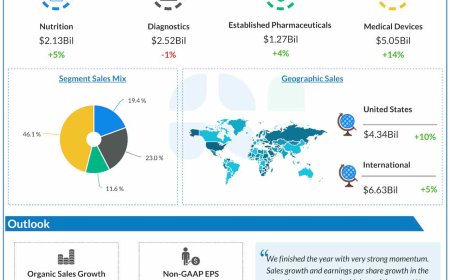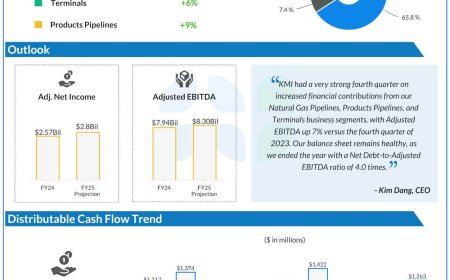Five Top Ways to Trade the Artificial General Intelligence Boom in 2025
Artificial General Intelligence (AGI) is expected to grow substantially in the new year, according to OpenAI CEO Sam Altman. He added that “things were moving faster than expected and that the path to AGI was ‘basically clear,’” as quoted by TomsGuide.com. All of which could have a sizable impact on related stocks such as VERSES AI (CBOE: VERS) (OTCQB: VRSSF), Nvidia (NASDAQ: NVDA), Microsoft (NASDAQ: MSFT), Advanced Micro Devices (NASDAQ: AMD) and Cisco (NASDAQ: CSCO). VERSES AI, for example, is taking a different approach in its quest to build a truly transformational Artificial General Intelligence (AGI) model. Rather than take the “scale up” approach, VERSES AI is modeling technology after nature’s blueprint. In contrast to the “artificial” approaches to intelligence, VERSES AI’s technology is rooted in what is known as Natural Computing. Even better, according to SNS Insider Research, the Artificial General Intelligence market – valued at $3.01 billion in 2023 – is estimated to reach $52 billion by 2032. “The rapid development in machine learning, deep learning, and the rise of powerful computing infrastructure are key factors driving the demand for AGI solutions across the globe. Businesses are increasingly looking for solutions that can perform tasks typically requiring human intelligence, such as reasoning, problem-solving, and understanding natural language,” they added. Here’s More from VERSES AI Inc. (CBOE: VERS) (OTCQB: VRSSF) VERSES AI Inc., a cognitive computing company, today revealed performance highlights of its flagship product Genius winning the code-breaking game Mastermind in a side by side comparison with a leading generative AI model, OpenAI’s o1 Preview, which is positioned as an industry-leading reasoning model. Over one hundred test runs, Genius consistently outperformed OpenAI’s o1-preview model one hundred and forty (140) times faster and more than five thousand times (5,000) cheaper. “Today we’re showcasing Genius’ advanced reasoning performance against state-of-the-art deep learning-based methods that LLMs are based on,” said Hari Thiruvengada, VERSES Chief Technology Officer. “Mastermind was the perfect choice for this test because it requires reasoning through each step logically, predicting the cause-and-effect outcomes of its decisions, and dynamically adapting to crack the code. This exercise demonstrates how Genius outperforms tasks requiring logical and cause-effect reasoning, while exposing the inherent limitations of correlational language-based approaches in today’s leading reasoning models. “This is just a preview of what’s to come. We’re excited to show how additional reasoning capabilities, available in Genius today and demonstrated with Mastermind, will be further showcased in our upcoming Atari 10k benchmark results,“ Thiruvengada continued. The comparison involved 100 games of Mastermind, a reasoning task requiring the models to deduce a hidden code through logical guesses informed by feedback hints. Key metrics included success rate, computation time, number of guesses, and total cost. In the exercise, VERSES compared OpenAI advanced reasoning model o1-preview to Genius. Each model attempted to crack the Mastermind code on 100 games with up to ten guesses to crack the code. Each model is given a hint for each guess and must reason about the missing part of the correct answer, requiring all six code colors to be correct to crack the code. For perspective, you can play the game at mastermindgame.org. A highlight of the results is below. You can find a more detailed description and results of the tests on our blog at verses.ai. The exercise: VERSES’ team conducted 100 games for each AI model, using the same secret code parameters: 4 positions and 6 possible colors. Results were measured by success rate, computation time, number of guesses, and total cost. The comparison is summarized below:Performance Highlights: - Accuracy and Reliability. Genius solved the code every time in a consistent number of steps. - Speed. Genius consistently solved games in 1.1–4.5 seconds, while ChatGPT’s solve times ranged from 7.9 to 889 seconds (approximately 15 mins) - Efficiency. Genius’ total compute time for 100 games was just over 5 minutes, compared to ChatGPT’s 12.5 hours. - Cost. Genius’ compute cost was estimated at $0.05 USD for all 100 games, compared to ChatGPT’s o1 model at $263 USD. In summary, Genius solved Mastermind 100% of the time, was 140 times faster and 5260 times cheaper than o1-preview. “These impressive results highlight a critical gap in today’s AI landscape: the limitations of language-based models like OpenAI’s o1 to handle logical reasoning tasks precisely and reliably,” said Gabriel René, founder and CEO of VERSES. “Mastermind code-breaking is an indicative test that showcases the class of logical reasoning and understanding of cause and effect needed for real-world applications like cybersecurity, f

Artificial General Intelligence (AGI) is expected to grow substantially in the new year, according to OpenAI CEO Sam Altman. He added that “things were moving faster than expected and that the path to AGI was ‘basically clear,’” as quoted by TomsGuide.com. All of which could have a sizable impact on related stocks such as VERSES AI (CBOE: VERS) (OTCQB: VRSSF), Nvidia (NASDAQ: NVDA), Microsoft (NASDAQ: MSFT), Advanced Micro Devices (NASDAQ: AMD) and Cisco (NASDAQ: CSCO).
VERSES AI, for example, is taking a different approach in its quest to build a truly transformational Artificial General Intelligence (AGI) model. Rather than take the “scale up” approach, VERSES AI is modeling technology after nature’s blueprint. In contrast to the “artificial” approaches to intelligence, VERSES AI’s technology is rooted in what is known as Natural Computing.
Even better, according to SNS Insider Research, the Artificial General Intelligence market – valued at $3.01 billion in 2023 – is estimated to reach $52 billion by 2032. “The rapid development in machine learning, deep learning, and the rise of powerful computing infrastructure are key factors driving the demand for AGI solutions across the globe. Businesses are increasingly looking for solutions that can perform tasks typically requiring human intelligence, such as reasoning, problem-solving, and understanding natural language,” they added.
Here’s More from VERSES AI Inc. (CBOE: VERS) (OTCQB: VRSSF)
VERSES AI Inc., a cognitive computing company, today revealed performance highlights of its flagship product Genius winning the code-breaking game Mastermind in a side by side comparison with a leading generative AI model, OpenAI’s o1 Preview, which is positioned as an industry-leading reasoning model. Over one hundred test runs, Genius consistently outperformed OpenAI’s o1-preview model one hundred and forty (140) times faster and more than five thousand times (5,000) cheaper.
“Today we’re showcasing Genius’ advanced reasoning performance against state-of-the-art deep learning-based methods that LLMs are based on,” said Hari Thiruvengada, VERSES Chief Technology Officer. “Mastermind was the perfect choice for this test because it requires reasoning through each step logically, predicting the cause-and-effect outcomes of its decisions, and dynamically adapting to crack the code. This exercise demonstrates how Genius outperforms tasks requiring logical and cause-effect reasoning, while exposing the inherent limitations of correlational language-based approaches in today’s leading reasoning models.
“This is just a preview of what’s to come. We’re excited to show how additional reasoning capabilities, available in Genius today and demonstrated with Mastermind, will be further showcased in our upcoming Atari 10k benchmark results,“ Thiruvengada continued.
The comparison involved 100 games of Mastermind, a reasoning task requiring the models to deduce a hidden code through logical guesses informed by feedback hints. Key metrics included success rate, computation time, number of guesses, and total cost.
In the exercise, VERSES compared OpenAI advanced reasoning model o1-preview to Genius. Each model attempted to crack the Mastermind code on 100 games with up to ten guesses to crack the code. Each model is given a hint for each guess and must reason about the missing part of the correct answer, requiring all six code colors to be correct to crack the code. For perspective, you can play the game at mastermindgame.org.
A highlight of the results is below. You can find a more detailed description and results of the tests on our blog at verses.ai.
The exercise: VERSES’ team conducted 100 games for each AI model, using the same secret code parameters: 4 positions and 6 possible colors. Results were measured by success rate, computation time, number of guesses, and total cost. The comparison is summarized below:

Performance Highlights:
- Accuracy and Reliability. Genius solved the code every time in a consistent number of steps.
- Speed. Genius consistently solved games in 1.1–4.5 seconds, while ChatGPT’s solve times ranged from 7.9 to 889 seconds (approximately 15 mins)
- Efficiency. Genius’ total compute time for 100 games was just over 5 minutes, compared to ChatGPT’s 12.5 hours.
- Cost. Genius’ compute cost was estimated at $0.05 USD for all 100 games, compared to ChatGPT’s o1 model at $263 USD.
In summary, Genius solved Mastermind 100% of the time, was 140 times faster and 5260 times cheaper than o1-preview.
“These impressive results highlight a critical gap in today’s AI landscape: the limitations of language-based models like OpenAI’s o1 to handle logical reasoning tasks precisely and reliably,” said Gabriel René, founder and CEO of VERSES. “Mastermind code-breaking is an indicative test that showcases the class of logical reasoning and understanding of cause and effect needed for real-world applications like cybersecurity, fraud detection, and financial forecasting—domains where causality, accuracy, and efficiency are non-negotiable. Genius not only excels at these tasks but does so faster, cheaper, and with unparalleled consistency, making it ideal for addressing complex business challenges. Genius not only excels at these tasks but does so faster, cheaper, and with unparalleled consistency, making it ideal for addressing complex business challenges.”
Other related developments from around the markets include:
Nvidia announced it is opening its first Vietnam research and development center, signaling its confidence in the country’s bright artificial intelligence future. The company is collaborating with the Vietnamese government to establish its new Vietnam Research and Development Center focused on AI. NVIDIA will use the R&D center to focus on software development, capitalizing on the country’s strong talent pool of STEM engineers, and to engage industry leaders, startups, government agencies, universities and students to accelerate the adoption of AI. “We are delighted to open NVIDIA’s R&D center to accelerate Vietnam’s AI journey,” said Jensen Huang, founder and CEO of NVIDIA. “With our expertise in AI development, we will partner with a vibrant ecosystem of researchers, startups and enterprise organizations to build incredible AI right here in Vietnam.”
Microsoft announced that its board of directors declared a quarterly dividend of $0.83 per share. The dividend is payable March 13, 2025, to shareholders of record on Feb. 20, 2025. The ex-dividend date will be Feb. 20, 2025.
Cisco, the worldwide leader in networking and security, today announced the findings from the second annual AI Readiness Index. The report explores how prepared organizations are to invest in, deploy and use AI. Nearly eight thousand organizations took part in the report. Most notably, the report highlights a huge chasm between the urgency companies feel to deploy AI and their readiness to do so. Nearly all companies (98%) report the urgency to deploy AI has increased in the last year. However, the research found that from 2023 to 2024, global AI readiness in the enterprise has actually declined. Only 13% of companies today are fully ready to capture AI’s potential – down from 14% a year ago. Given the rapid market evolution and the significant impact AI is anticipated to have on businesses, this gap between urgency and ability is especially startling.
Advanced Micro Devices announced the expansion of the AMD Versal™ adaptive system-on-chip (SoC) portfolio with the introduction of the Versal RF Series that includes the industry’s highest compute performance in a single-chip device with integrated direct radio frequency (RF)-sampling data converters. Versal RF Series offers precise, wideband-spectrum observability and up to 80 TOPS of digital signal processing (DSP) performance2 in a size, weight, and power (SWaP)-optimized design, targeting RF systems and test equipment applications in the aerospace and defense (A&D) and test and measurement (T&M) markets, respectively.
Legal Disclaimer / Except for the historical information presented herein, matters discussed in this article contains forward-looking statements that are subject to certain risks and uncertainties that could cause actual results to differ materially from any future results, performance or achievements expressed or implied by such statements. Winning Media is not registered with any financial or securities regulatory authority and does not provide nor claims to provide investment advice or recommendations to readers of this release. For making specific investment decisions, readers should seek their own advice. Winning Media is only compensated for its services in the form of cash-based compensation. Pursuant to an agreement Winning Media has been paid three thousand five hundred dollars for advertising and marketing services for VERSES AI Inc. by VERSES AI Inc. We own ZERO shares of VERSES AI Inc. Please click here for disclaimer.
Contact:
Ty Hoffer
Winning Media
281.804.7972
[email protected]











































